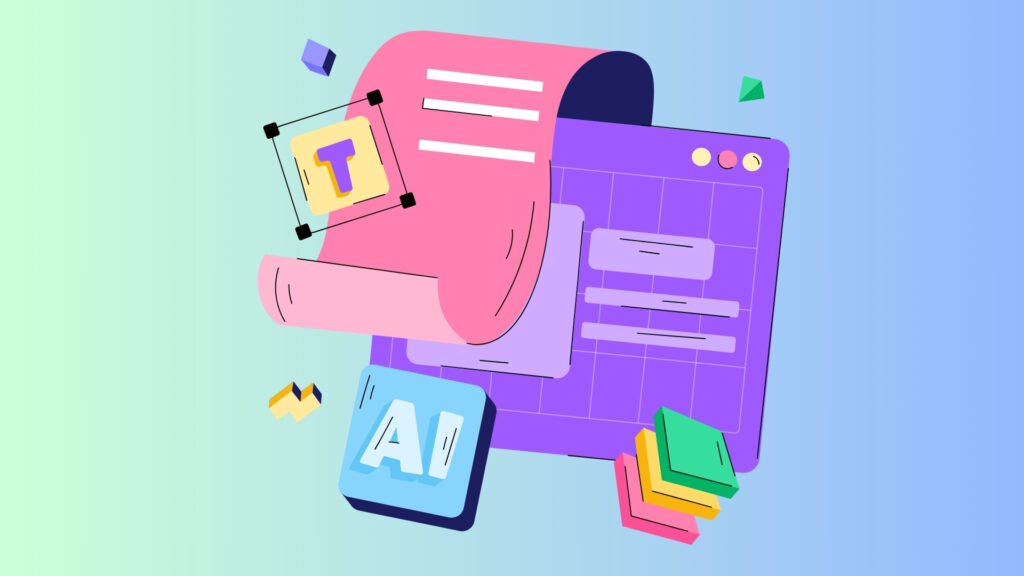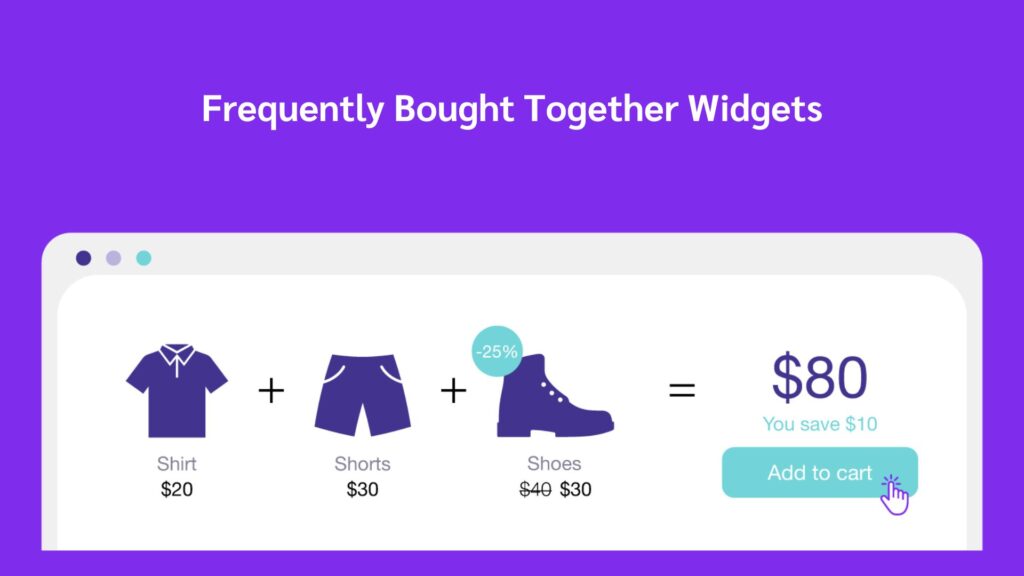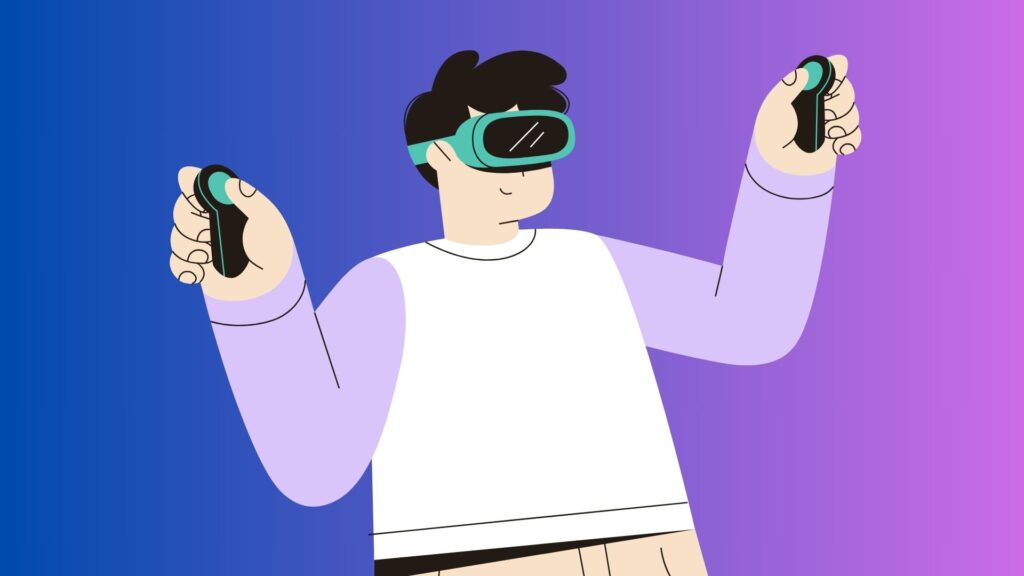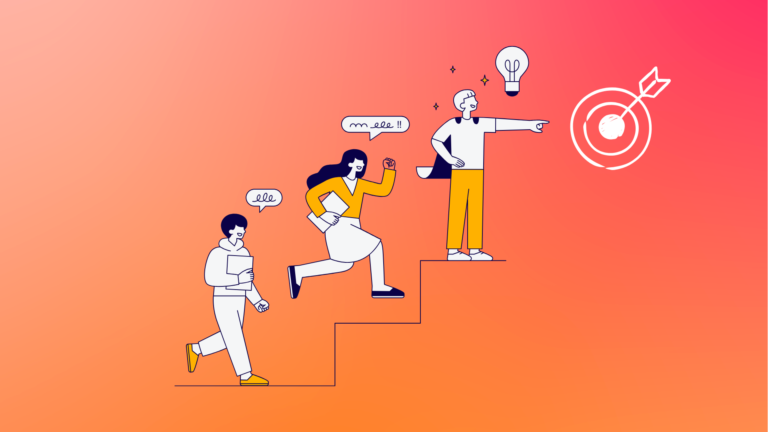
In the ever-evolving world of digital marketing, the integration of AI is not just a fad anymore, but a revolutionary shift that’s redefining the landscape. Businesses are leveraging AI to enhance their customers’ experiences, drive personalization, and optimize marketing strategies more efficiently than ever before.
I’ve got a couple of predictions and current realities on how AI is transforming digital marketing. Let’s explore this relationship between marketing and AI, and dive into how these technological advances are going to reshape the digital marketing sphere.

The rise in AI in marketing
In recent years, artificial intelligence has made a grand entrance into the world of digital marketing, becoming a powerful transformative force. AI involves using machines to simulate human intelligence processes, such as learning and reasoning, which can be harnessed to develop advanced marketing strategies.
By gathering data, AI enables businesses to analyze consumer behaviours, automate tasks, and curate personalized experiences, essentially allowing us to do more with less effort. In a sense, AI is being able to read a marketer’s mind and give them a helping hand, even honestly kind of close to like having telepathic abilities.
But what does that mean in practical terms for us as marketers?
Here’s a quick snapshot:
- AI in advertising: AI algorithms are now capable of purchasing ads in real time, ensuring efficient spend and optimal reach. Google Ads, for example, leverages AI to make smarter bidding decisions.
- AI-powered personalization: Consumers crave personalization. AI’s ability to predict user behaviour and personalize content based on consumer behaviour means that we can tailor ads and campaigns to individual preferences. Even Netflix and Spotify are using AI to suggest personalized content.
- Chatbot marketing: With AI-powered chatbots, companies can now facilitate 24/7 customer support, driving efficiency and customer satisfaction. Personally I don’t love this – see my previous blog for why.
- AI-powered search: With AI being able to predict user behaviour, users are now able to get answers quicker. For example, even on Google search results, users aren’t even needing to go into a website when Google is already able to present the answers right on the search results page.
The rise of AI isn’t just about flashy tools and tech jargon; it’s about harnessing unprecedented data insights and improving how we connect with our audience.

AI-driven personalization
Nothing spells customer delight quite like AI-driven personalization. Being able to tailor a personalized experience for each customer means that they’re more likely to see what they want on your website. AI is honing personalization to such an extent that customers now anticipate the tailor-made experience as their birthright, not a bonus.
According to a study by Segment, 71% of consumers feel frustrated when a shopping experience is impersonal, so enter AI. Imagine walking into your favourite store where the staff knows not only your name but also your preferences.
AI-driven personalization is revolutionizing how we engage with customers, creating highly tailored experiences that boost engagement and conversion rates. By analyzing vast amounts of data on customer behaviour, preferences, and interactions, AI can deliver personalized content, product recommendations, and marketing messages at scale.
For example, eCommerce giants like Amazon and Netflix use sophisticated AI algorithms to provide personalized product and content recommendations. Those “Frequently Bought Together” widgets do wonders in lifting up your AOV.

In 2024, I predict that we’ll be seeing even more hyper-personalization dominate the digital marketing landscape. AI will enable marketers to analyze every touchpoint of the customer journey, delivering content, products, and services uniquely tailored to individual preferences. This level of personalization will extend beyond just product recommendations to include personalized email content, targeted ads, and even customized website experiences.
To implement AI-driven personalization effectively, marketers should focus on:
- Leveraging AI tools for dynamic content personalization in emails
- Implementing chatbots that offer personalized customer service
- Utilizing AI-driven customer segmentation for micro-targeted campaigns
By embracing these AI-powered personalization strategies, businesses can create deeper connections with their audience, leading to increased engagement, loyalty, and ultimately, higher conversion rates.

Predictive analytics & decision-making
Another transformative aspect of AI in digital marketing is its ability to provide powerful predictive analytics and enhance decision-making processes. AI-driven predictive analytics enable marketers to anticipate customer behaviour and make data-informed decisions with unprecedented accuracy.
By analyzing historical data, AI can forecast future trends, helping businesses plan their strategies more effectively. For instance, retailers are using predictive analytics to optimize inventory levels and marketing efforts, reducing costs and improving customer satisfaction. In fact, Amazon’s warehouses are shifting inventory around to their various other warehouses. This is done so that they can ensure that their products are closer to where their customers are, and reach their customers even faster than before.
In 2024, predictive analytics will be an essential tool for all marketers. AI-powered predictive models will allow businesses to:
- More accurately anticipate customer demands and behaviours
- Reach the right audience at the right time with the right message
- Take proactive action, resulting in more tailored advertising and improved performance
To implement this strategy, businesses should invest in AI-powered marketing systems that analyze consumer behaviour and provide actionable marketing insights. Platforms like Salesforce Einstein and HubSpot’s AI tools already offer such capabilities, providing insights that go beyond human comprehension.
I predict that with the prevalence of AI use in marketing, there’s definitely going to be an increased focus on ethical AI use and privacy compliance. In the future, I expect to see the development of AI systems that are designed with privacy and ethics in mind from the ground up. This could include AI that automatically ensures marketing campaigns comply with data protection regulations and has a focus on transparency for the user.

AI in content creation and optimization
AI is also revolutionizing content creation and optimization, allowing marketers to produce content efficiently and optimize it for better performance. Advanced AI tools like GPT-4 are capable of generating text content by aggregating content from across the internet, from blog posts to social media updates. These tools can create engaging and relevant content, saving time and resources for marketers. For example, The Washington Post uses AI to write news articles, freeing up journalists to focus on in-depth reporting.
In terms of content optimization, AI helps improve SEO by analyzing keywords, recommending improvements, and tracking performance. AI-driven SEO tools can identify the most effective keywords, suggest content structure, and monitor rankings, making the optimization process more efficient and accurate.
The proliferation of AI-generated content presents a double-edged sword for digital marketing, leading to an overflow of low-quality material online. This creates a concerning spiral as AI models are trained on this artificial content, potentially perpetuating inaccuracies. The volume of AI-generated content overwhelms readers and challenges SEO, making it harder for quality human-created content to stand out. As this issue escalates, the line between human and AI-created content blurs, potentially eroding trust in online information. To address this, we may see advanced content verification tools, emphasis on human creativity, and ethical AI guidelines. Marketers will need to adapt, possibly adopting a hybrid approach combining AI efficiency with human oversight to produce authentic, valuable content in an increasingly AI-dominated landscape.
Personally, I’ve seen reports of Google now starting to weed out content that it considers written by AI. I’ve personally seen numerous websites getting affected by having their web traffic slashed quite dramatically after integrating AI into their strategy. Their focus on quantity rather than quality of their content has led to some destructive outcomes. I predict this issue will continue to grow in the future, especially as LLMs like ChatGPT allow marketers to create content at a much faster scale than ever before.
In fact, the reality is that in the longer term future, especially when large companies like Meta, Google, and Amazon control a significant portion of the internet traffic and are changing the way we use websites, the need for content generation may diminish.
With Google’s ability to directly answer questions on the search results page, users are no longer clicking into websites. This raises the question of whether there will be a need for individual websites at all. Instead, I believe the focus will shift towards optimizing website integration with these major platforms to ensure the visibility of your content.
I actually think that AI-generated content will likely become obsolete in the future as well. This is because, once again, Google Gemini can provide answers directly on the search results page. Therefore, the only content that will remain essential will be highly specific and niche content that cannot be found elsewhere.

The future
As we look towards the future, it’s clear that AI will continue to reshape the digital marketing landscape. Marketers who embrace these technologies will have a significant advantage, able to deliver more relevant, timely, and effective campaigns.
However, it’s important to remember that while AI is a powerful tool, it’s not a replacement for human creativity and strategic thinking. The most successful marketers will be those who can effectively combine AI’s capabilities with human insight and empathy.
As we move into this AI-driven era of digital marketing, the possibilities are truly exciting. By staying informed about these developments and being willing to adapt and learn, marketers can harness the power of AI to create more meaningful connections with their audience and drive unprecedented growth for their businesses.
The future of digital marketing is here, and it’s powered by AI. Are you ready to embrace it?



